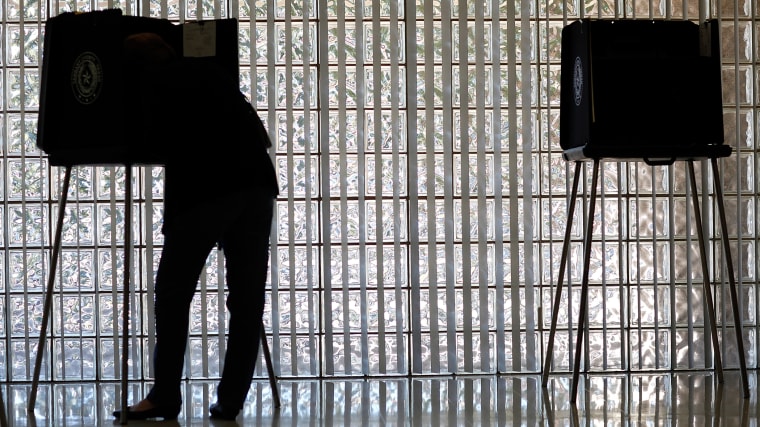In his stirring address in Selma over the weekend, President Obama did more than just honor those who marched at the Edmund Pettus Bridge a half-century ago. He also used the opportunity to
push for the same policy goals those civil-rights marchers sought in 1965.
"Right now, in 2015, 50 years after Selma, there are laws across this country designed to make it harder for people to vote. As we speak, more of such laws are being proposed. Meanwhile, the Voting Rights Act, the culmination of so much blood, so much sweat and tears, the product of so much sacrifice in the face of wanton violence, the Voting Rights Act stands weakened, its future subject to political rancor. "How can that be? The Voting Rights Act was one of the crowning achievements of our democracy, the result of Republican and Democratic efforts. President Reagan signed its renewal when he was in office. President George W. Bush signed its renewal when he was in office. One hundred members of Congress have come here today to honor people who were willing to die for the right to protect it. If we want to honor this day, let that hundred go back to Washington and gather four hundred more, and together, pledge to make it their mission to restore that law this year. That's how we honor those on this bridge."
If you look closely at the video, at this point in Obama's speech, the camera pans left and catches George W. Bush and Laura Bush both
standing and applauding the president's plea to Congress.
With this kind of bipartisan backing, it's tempting to think real progress is possible. Indeed, after the events in Selma over the weekend, and given
the larger context, it seems as if Congress' Republican majority would have to be crazy to spend another two years ignoring calls to revitalize the Voting Rights Act.
But it's apparently not as simple as it should be.
To his enormous credit, Sen. Chris Coons (D-Del.) was in Selma and
literally walked the streets "with a copy of draft Voting Rights Act legislation in his pocket, trying to win support from his GOP colleagues to restore the landmark law."
Sen. Tim Scott, R-S.C., an honorary co-chairman of the Selma trip and the only African-American Republican in the Senate, said voting rights and the commemoration of Selma should be "de-coupled." "The issue of voting rights legislation and the issue of Selma, we ought to have an experience that brings people together and not make it into a political conversation," Scott said.
By any fair measure, this is plainly foolish. Why exactly does Sen. Scott think those men and women marched in Selma in 1965? Voting rights were the whole point. Trying to "de-couple" voting rights from Selma is like trying to separate water from the ocean -- the two are linked inextricably.
The facts are simply not in dispute. Ari Berman has
documented the extent to which voting rights have been under attack over the last several years, and in most cases, these voter-suppression campaigns are the direct result of Republican justices on the Supreme Court gutting the Voting Rights Act.
It's easy to show up at a celebration, appear at a photo-op, and say all the right things, but the real test comes when policymakers return to work. To honor those who marched in Selma is to protect voting rights. It's that simple.
For two years, GOP lawmakers in Congress have
balked at the very idea of taking up this issue. This weekend's events in Alabama can serve as a reminder: it's not too late for Republicans to change course.
